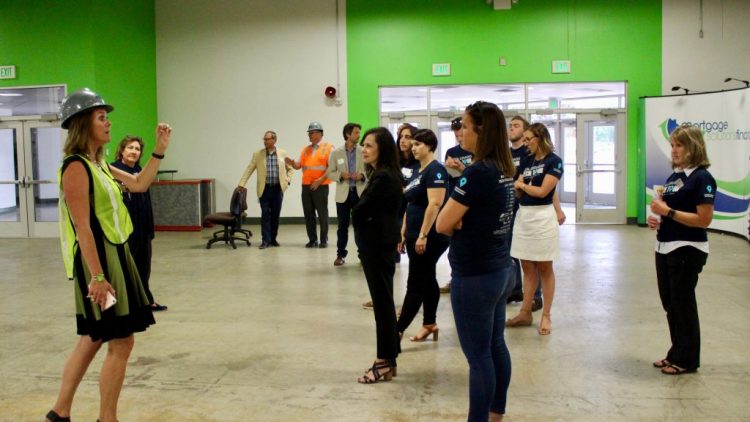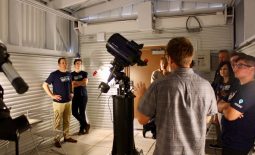National Cybersecurity Center Starts to Take Shape
The National Cybersecurity Center (NCC) was set in motion when Gov. Hickenlooper traveled to Tel Aviv, Israel, in 2015 to tour their collaborative center. When he came back, he laid out the vision of a public-private partnership that would put Colorado on the map at the forefront of cybersecurity training, research and response.
Today, that vision is beginning to take shape. In 2016, the state Legislature provided $8 million to buy an old TRW building owned by the University of Colorado – Colorado Springs. One step at a time, the NCC is building out two massive spaces – 65,000 square feet for research and incident response and 70,000 square feet for education and training.
Once complete, it will stand up the three core components of the governor’s initial mission: a rapid response center to help businesses address an attack, an institute to stay on top of a fast-moving field and a training center for public officials, business owners and more around the country to understand the cybersecurity landscape.
Everything at the NCC is coming on in phases. As COO Jenifer Furda says, “we’re building the bridge as we cross it.” Nothing about cybersecurity stands still, so they’re always navigating a changing current.
What’s certain is that the NCC will provide Colorado Springs and the state as a whole with a facility unlike anything around. It will host spaces that cover all levels of security clearance – closed, restricted, SCIF and SAP – used for high-level conversations, conferences or research and writing. SCIF and SAP – think of buildings within a building that require you to hand over all electronics before entering – in particular are hard to come by for a lot of small- and medium-sizes businesses.
There will also be open spaces where entrepreneurs can collaborate and companies can test out equipment, all over heavily encrypted WiFi – after all, the eventual high visibility of the NCC will attract its fair share of hackers.
But in the midst of a secretive, challenging industry, Furda is focused on creating a community space that moves the cybersecurity discussion forward here locally so that Colorado Springs, Colorado and eventually the country can remain on top of the threats that exist.
“Sixty percent of small businesses that experience a cyber incident go out of business within a year,” she said. “We want to be a lifeline for them.”
It may only be at the earliest stages, but the NCC is building an asset that soon will be known far and wide. Stay tuned.



